Are you ready to take your career to the next level in business development? Crafting the perfect cover letter can be your ticket to landing that dream job. By highlighting your skills and experiences in a compelling way, you can make a lasting impression on potential employers. Keep reading to discover a simple yet effective letter template that will help you showcase your strengths and stand out in the competitive job market!
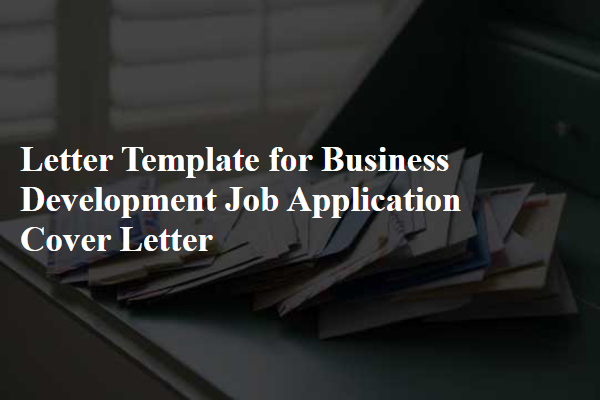
Personalization and Addressing
Personalization in business development job applications requires a targeted approach. Candidates should directly address hiring managers by name, demonstrating research into the company, such as "Dear [Hiring Manager's Name]," instead of generic greetings. Mention specific details about the organization, like the latest project, achievements, or core values, to showcase genuine interest. Tailoring the introduction with relevant experience or skills that align with the company's goals can significantly enhance engagement. Highlighting particular achievements, such as exceeding sales targets (e.g., increasing revenue by 30% in 2022), places emphasis on how personal contributions can add value to the business development team.
Relevant Skills and Experience
A strong cover letter for a business development position should highlight relevant skills, experiences, and achievements. A strategic focus can include key abilities in market analysis, relationship-building, lead generation, and negotiation. Successful candidates often demonstrate expertise in utilizing CRM software, like Salesforce, for tracking sales pipelines and forecasting revenue. Noteworthy experiences should mention significant past roles, such as Business Development Manager at a major tech firm, where increasing annual revenue by 30% through targeted marketing strategies occurred. Emphasizing effective communication and networking skills can illustrate capability in expanding professional connections at industry events like the annual Web Summit, held in Lisbon. The ability to analyze market trends can present a data-driven approach in identifying growth opportunities in sectors like renewable energy or e-commerce. This body of work showcases a well-rounded candidate prepared to contribute to organizational growth.
Job-Specific Keywords
Effective business development requires strategic market analysis and relationship management to identify growth opportunities. Key skills include negotiation techniques and customer acquisition strategies that are essential for driving revenue in competitive sectors. Proficiency in CRM software, alongside data-driven decision-making, enhances outreach effectiveness. Networking events and industry conferences facilitate connections that can lead to partnerships or client engagements. Familiarity with financial modeling and budgeting aids in measuring project viability and ensuring sustainable growth. Understanding industry trends is vital for positioning an organization to capitalize on emerging opportunities.
Professional Tone and Structure
The business development sector demands a keen understanding of market dynamics, strategic thinking, and strong communication skills to foster relationships. This role at leading firms, such as Salesforce or HubSpot, often focuses on expanding market presence by identifying growth opportunities and nurturing client relationships. For instance, professionals aim to increase annual revenue targets, establishing partnerships with key industry players, and enhancing customer acquisition strategies. Networking events, such as trade shows or webinars, frequently serve as platforms to connect with stakeholders, thereby maximizing deal closures and improving market intelligence. Candidates often leverage metrics, such as customer lifetime value (CLV) and return on investment (ROI), to demonstrate their impact on the organization's growth trajectory and ensure alignment with corporate objectives. Completeness in market research and competitor analysis also allows for informed decision-making, which is crucial for staying ahead of industry trends and consumer preferences.
Call to Action and Contact Information
In the competitive landscape of business development, showcasing your commitment and enthusiasm is essential. The concluding section of your cover letter should include a strong call to action, encouraging the hiring manager to connect. Express gratitude for their time and consideration, emphasizing eagerness to discuss how your skills and experiences align with their company's goals. Include your contact information clearly, making it easy for them to reach you. This should encompass your phone number, email address, and LinkedIn profile if applicable. An effective closing ensures you leave a lasting impression, inviting further dialogue about your potential contributions to the team.
Letter Template For Business Development Job Application Cover Letter Samples
Letter template of business development executive job application cover letter
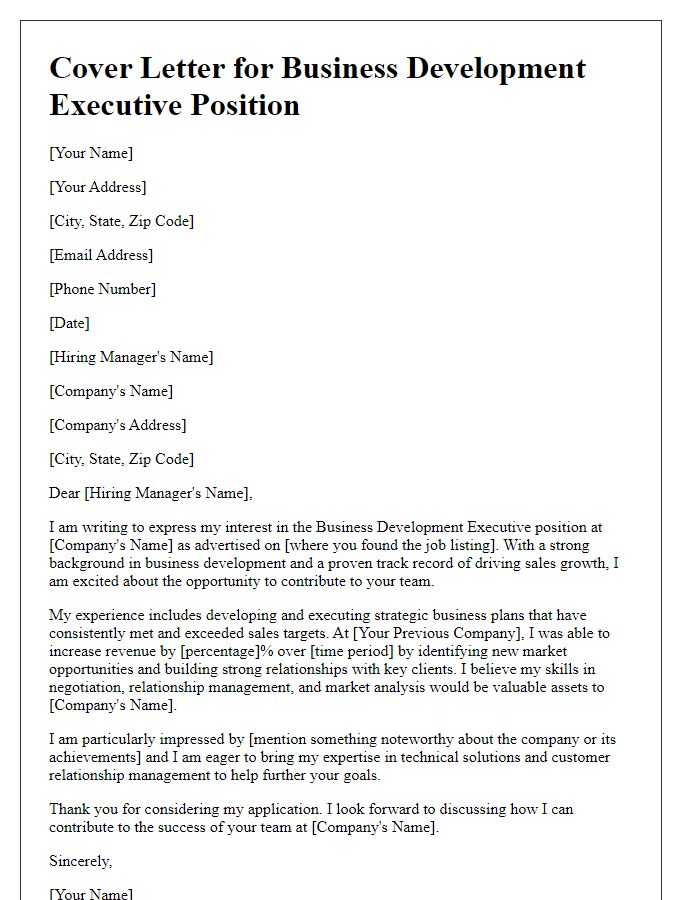
Letter template of business development manager job application cover letter
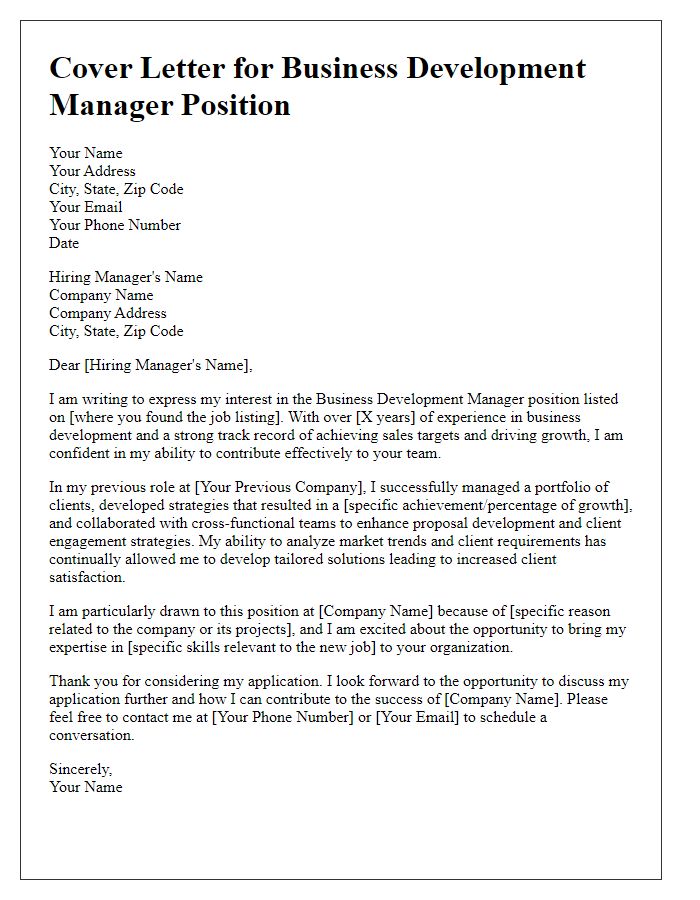
Letter template of business development associate job application cover letter
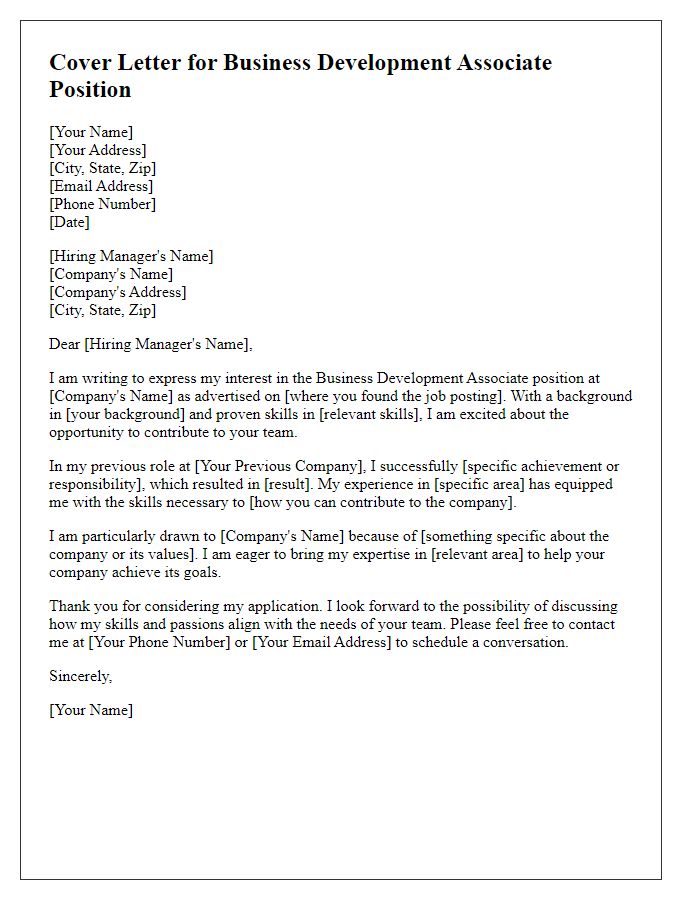
Letter template of senior business development officer job application cover letter
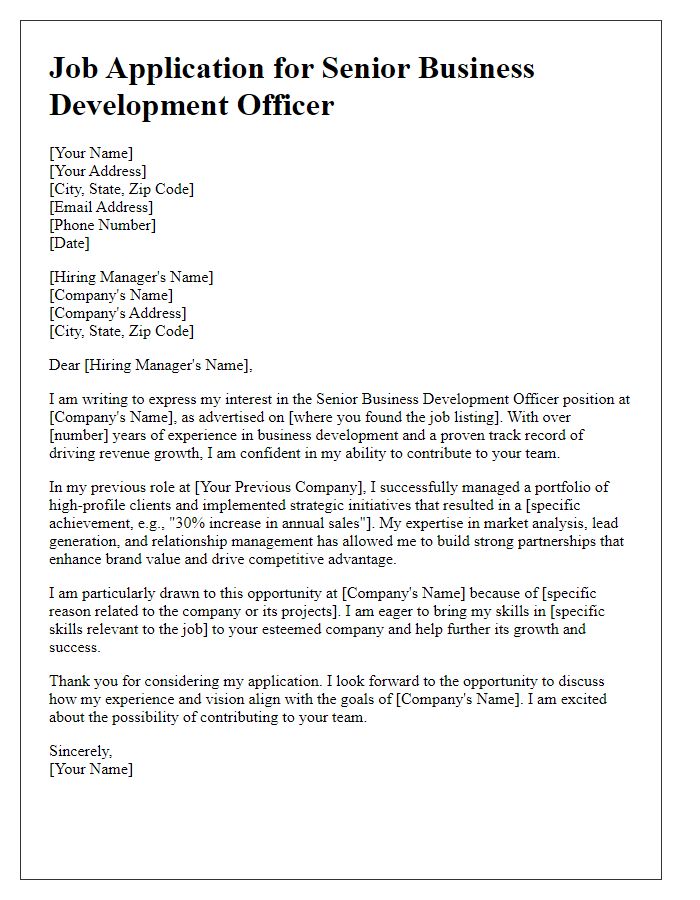
Letter template of entry-level business development job application cover letter
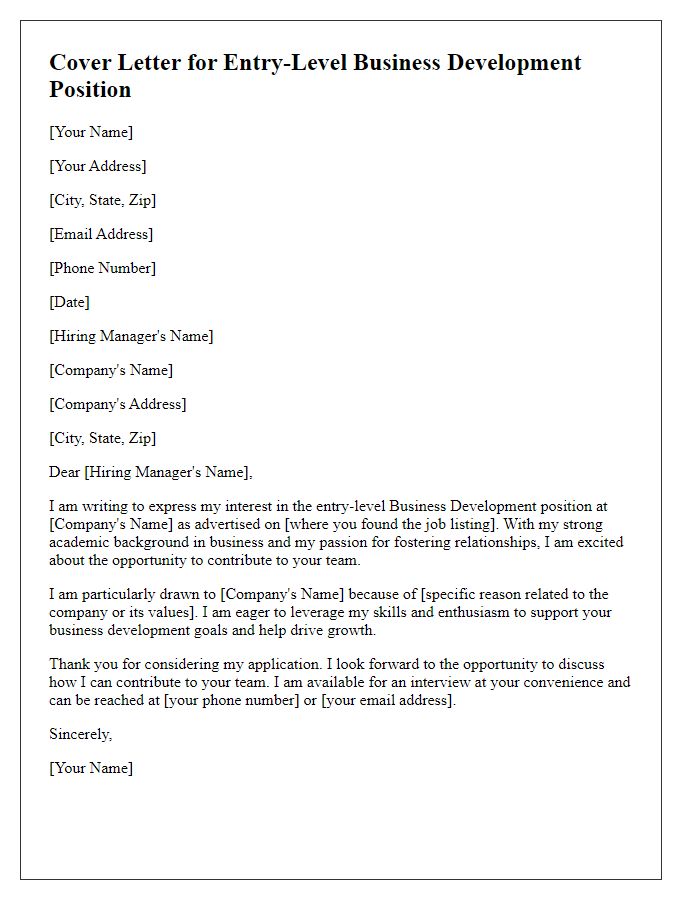
Letter template of business development representative job application cover letter
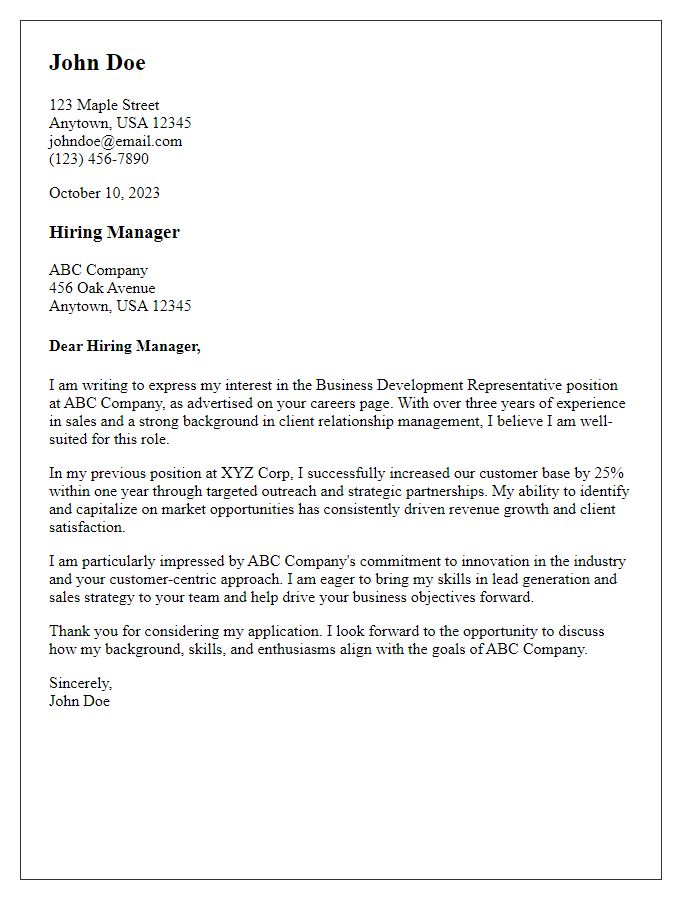
Letter template of business development analyst job application cover letter
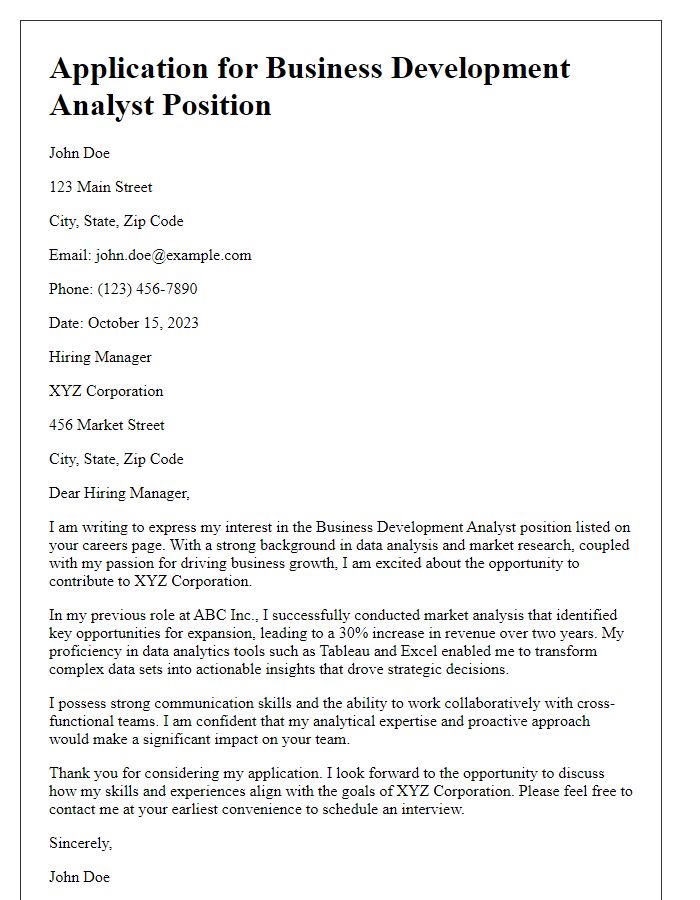
Letter template of strategic business development job application cover letter
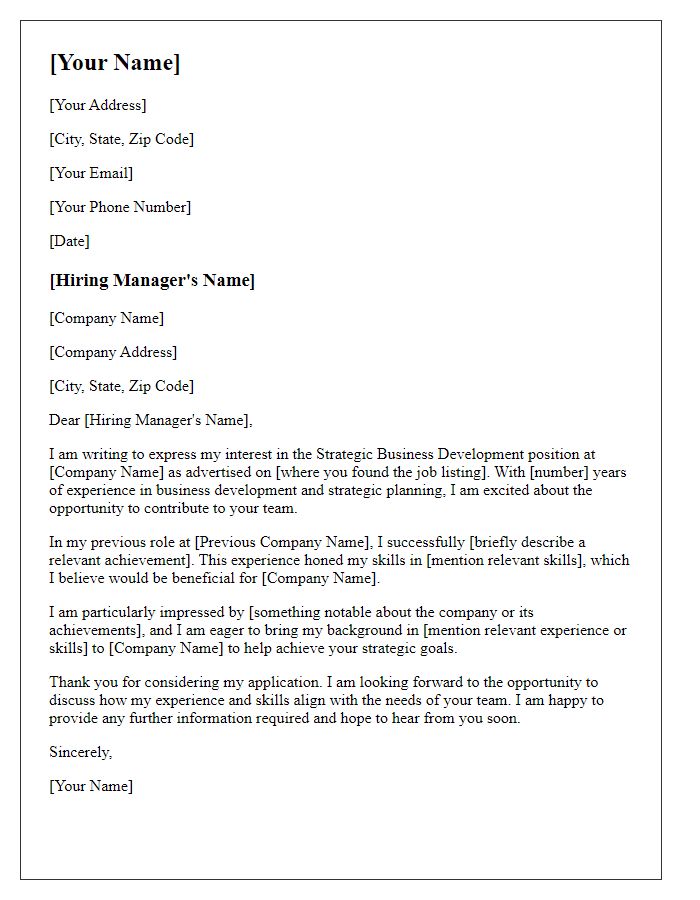
Letter template of international business development job application cover letter
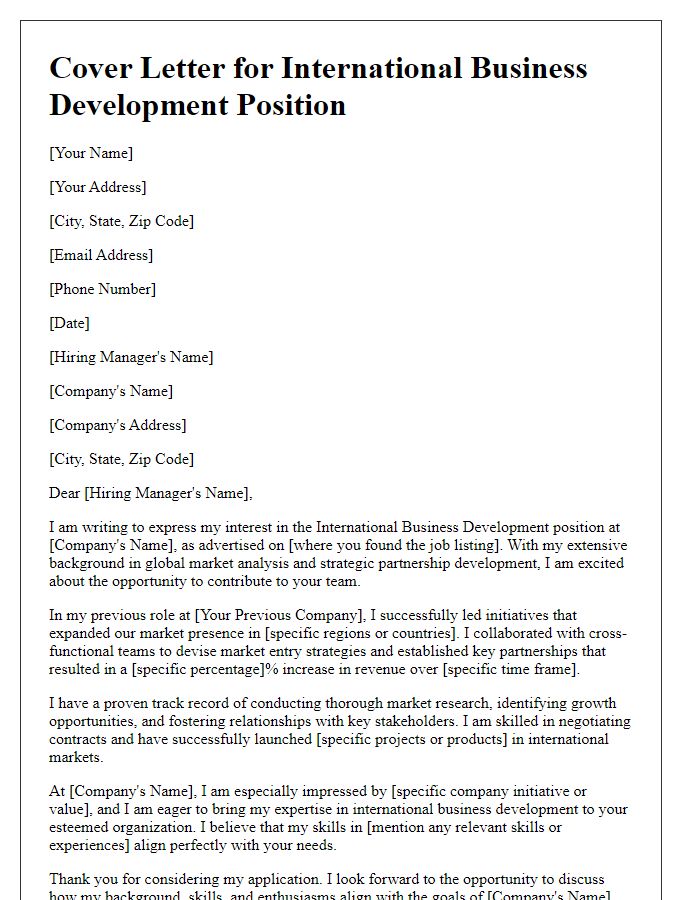

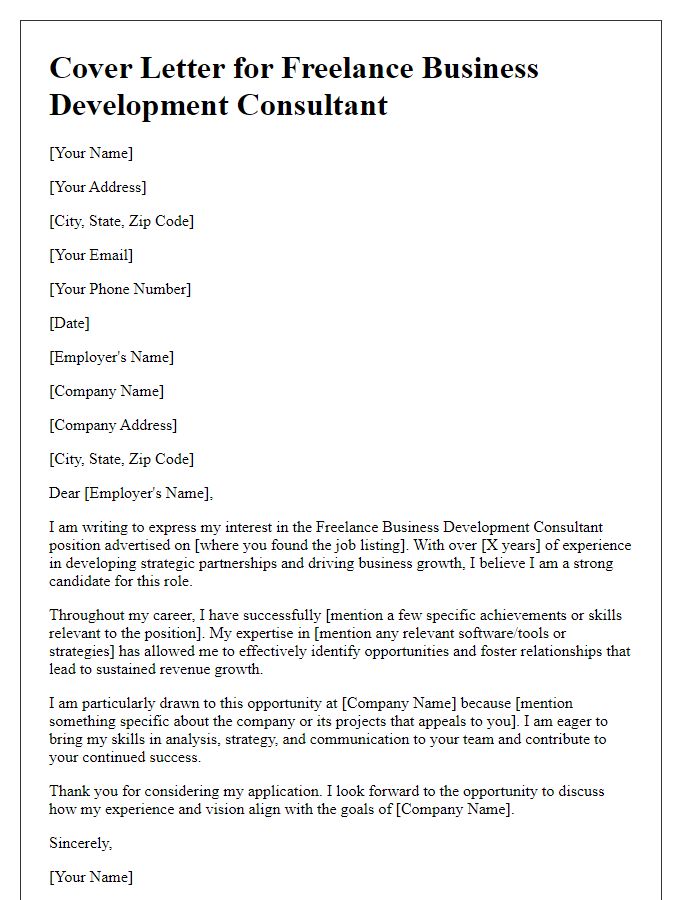


Comments